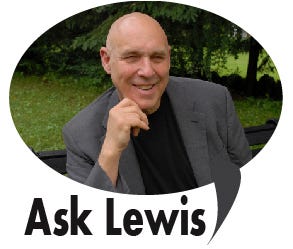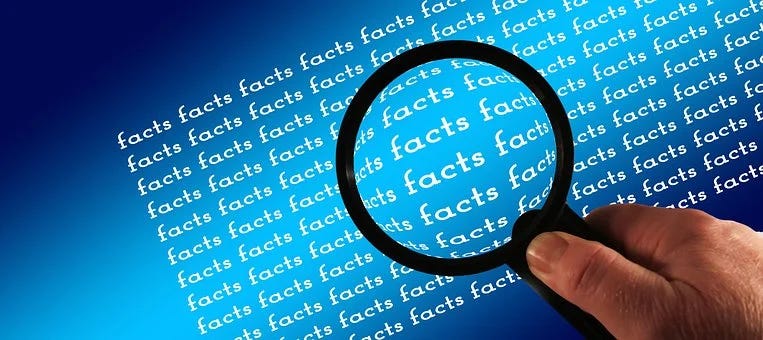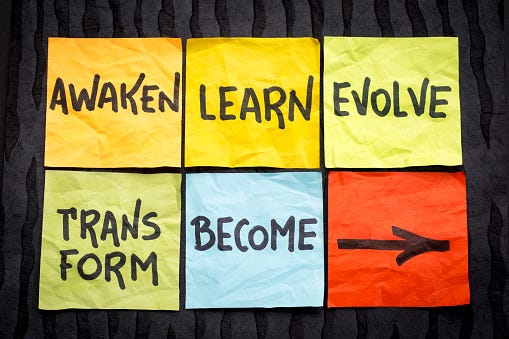The Best Winning Strategies: Correlation versus Causation?
Facts, Fake News, and Problem Solving Lifehacks
“This newsletter serves a demographic of highly intelligent readers, and deep thinkers with a passion for ideas, critical thinking, and a desire to understand the world around them. Readers of my posts are usually tired of being patronized elsewhere by fact-less, opinionated know-nothings, misinformation, conspiracy theories, and fake news.
“Knowledge is power, wisdom brings meaning, contentment, and happiness!”
——————————————————————————————————————
On a personal note: Please excuse grammatical errors, typos, repetition, and any general nonsense, and such in this post. I am getting a bit older now, and I have about 20,000 pages of information that must get published before I leave the mortal coil. I simply write and publish more than my humble editors are able to correct. If you find enough errors you are welcome to contact me about being an editor of my work.
Thanks for sharing this newsletter with your friends and associates - Join us for daily tips on personal development at our free Self-Improvement for Beginners Group and Forum
Click Below or cut and paste the URL to Join
https://www.facebook.com/groups/455029215769173
———————————————————
A 3 - Minute Read
Q. Lewis, I had a conversation with a friend, a person I consider to be quite intelligent. It seems we disagree about almost everything concerning politics and economics. He thinks President Biden’s cutting of funding for Trump’s Wall was a bad idea. He also believes Biden’s position on fossil fuels and gas prices are connected. Is he right, and if he isn’t why isn’t he?
A. Your disagreements are likely tied to correlation and causation. Correlation does not imply causation. In fact, there is a great difference between correlation and causation
Many intelligent people make very poor decisions because they do not understand the difference between Correlation and Causation.
A correlation is a reasonable (but often incorrect) connection we make concerning the relationship between two or more people, places, things, or events, even when there may be no actual connection between them.
Correlation Example #1 – A building collapses in Miami and a car wash in Orlando has increased business. Wrong conclusion based on correlation. The collapse in Miami is the cause of the increased carwash business.
Correlation Example #2 - The sales of ice cream and crime rates increase in warm weather. Wrong conclusion based on correlation. The sales of ice cream are directly tied to the increased crime rate.
Correlation Example #3 – The high cost of gas is a result of Biden’s policy of not allowing drilling for oil on federal Land.
Concerning gas prices? There is no simple or easy answer. If you want to explore a serious exploration of the issue without blaming Biden or Oil companies here is a 10 minute read that can explain it to you.
Here is a good article, and unbiased on the gas issue.
https://www.theatlantic.com/science/archive/2022/02/why-gas-got-so-expensive/622887/
Correlation Example #4 – Claim? Crime rates are higher because of illegal immigrants. Reality? No one actually knows the answer to this because the statistics are not available. Here is an article explaining this.
https://www.pnas.org/doi/10.1073/pnas.2014704117
Now about Causation: A causation relationship means that changes in one event directly bring about changes in the other event; Here there is a direct, observable cause-and-effect relationship between variables. The two variables are correlated with each other and also can be connected as causation. Here there must be a direct, measurable, evidence-based causal link between them. It cannot be guessed at, or assumed.
Mark, many people make assumptions based on correlations that are just plain wrong but seem correct.
To be specific, there are over 180 specific forms of correlation that seem correct but they are wrong!
Here are just two:
Base rate fallacy or Base rate neglect: The tendency to ignore obvious and basic information (base rate information) while focusing on specific information (information only pertaining to a certain case) through correlation.
Clustering illusion: (CB) The tendency to overestimate the importance of small actions, small runs, streaks, or clusters in large samples of random data (that is, seeing phantom patterns). Example: Trump built a wall, and walls stop things, so Trumps wall must be good!”
If you want to read the other 178 collaborative biases and you promise to read them, I’ll send them to you.
The Takeaway
Remember this: In any business, and in our personal lived as well, when things go wrong, you can usually be sure that they went wrong because the business person who took the loss made a decision based on correlation that they confused (and assumed was) causation when it wasn’t causation.
I don’t want to take a position one way or the other on specific issues, you asked about but I do think your friend’s thinking is misguided. Clearly, this individual does not understand the difference between causation and correlation, and the difference between the two is very important for anyone wishing to reduce unnecessary struggle in their life.
Here is a short video about some of what I am working on in the realm of personal development and self-improvement.
—————————————————
Author: Lewis is a writer, teacher, and master results-oriented life coach. He is the author of over twenty books, numerous self-improvement, and personal development courses, and is the former host of a talk show on NPR Affiliated WIOX91.3 FM. He can be contacted at LewisCoaches@gmail.com
—————————————————
If you want to live a struggle-free life, filled with knowledge and wisdom, please consider signing up for our course Winning the Game of Life: Lewis Harrison’s Life Strategies Playbook Method from A-Z.
Click on the button just below or copy and paste the link to learn more about the course …
——————————————————









